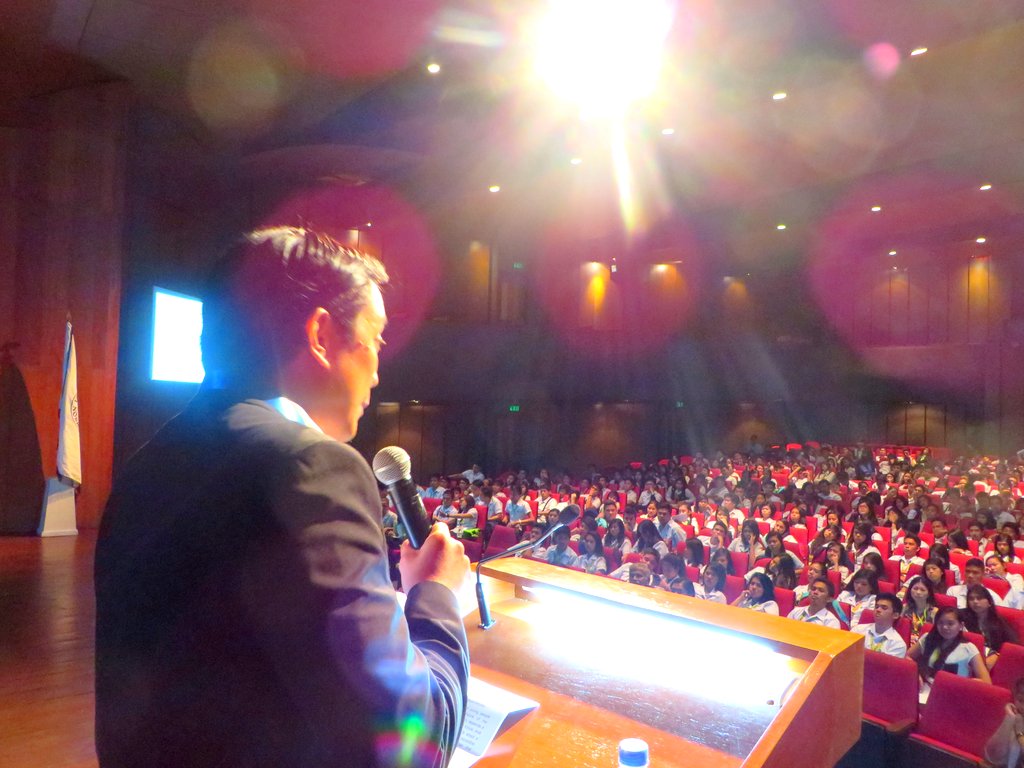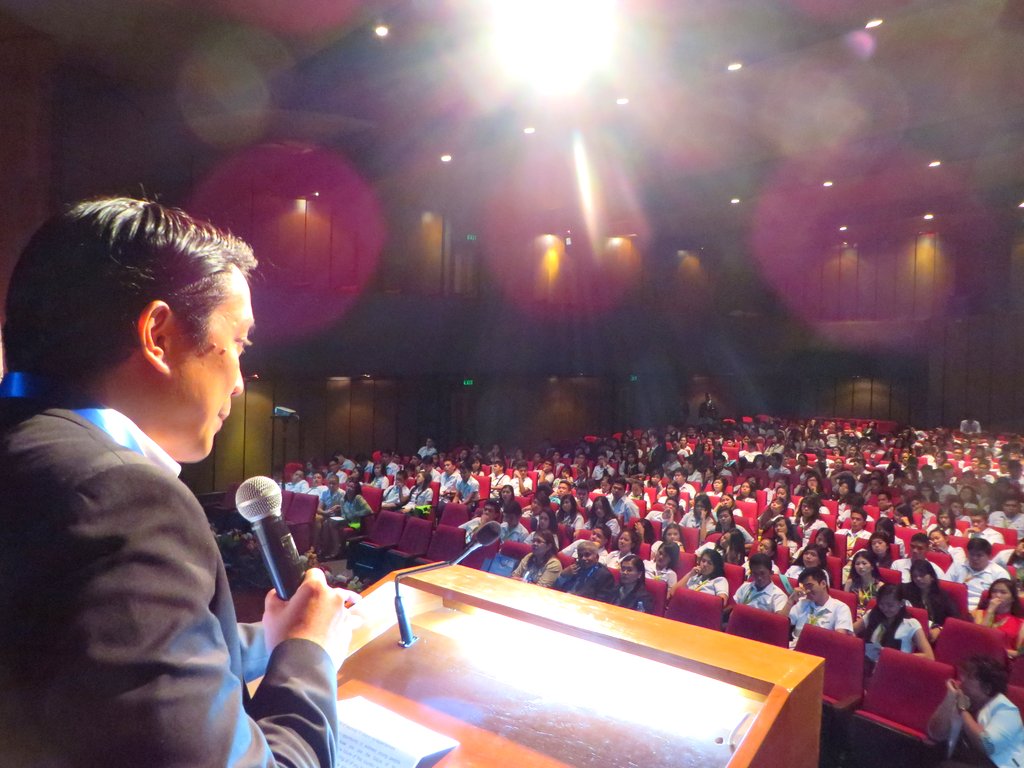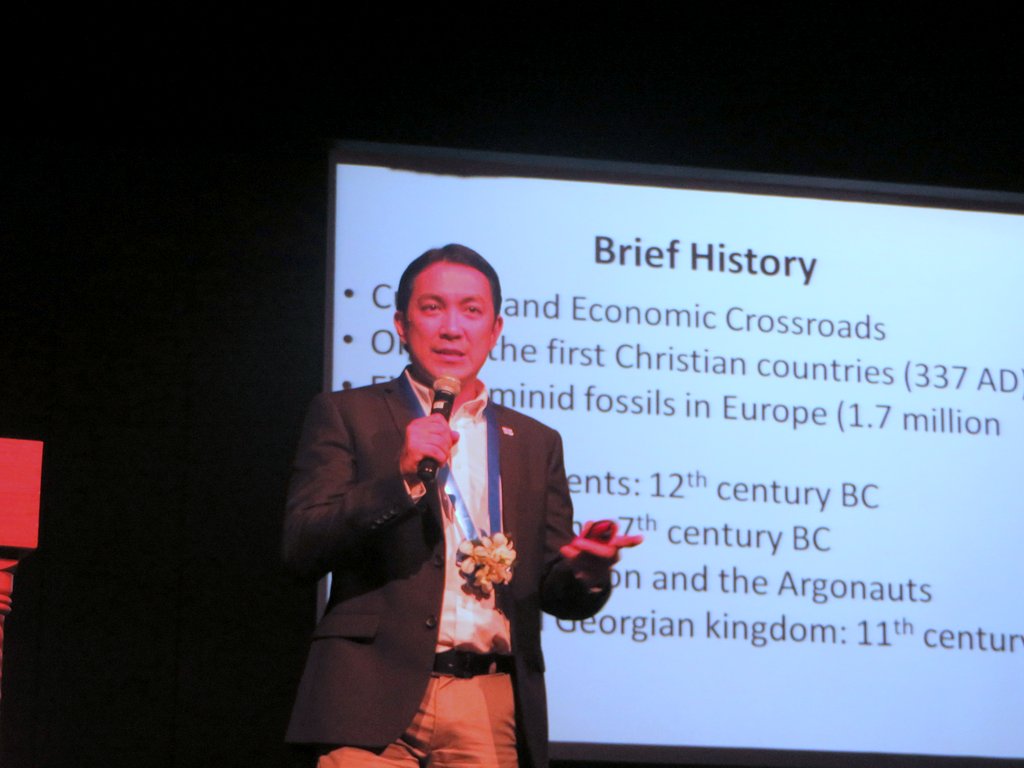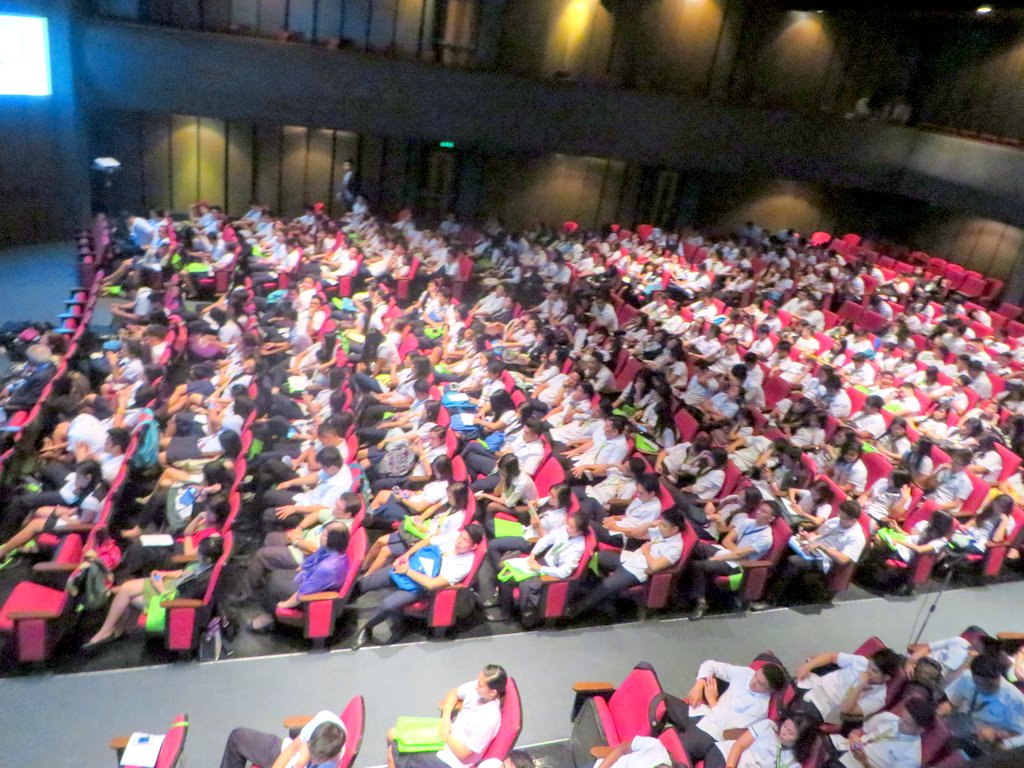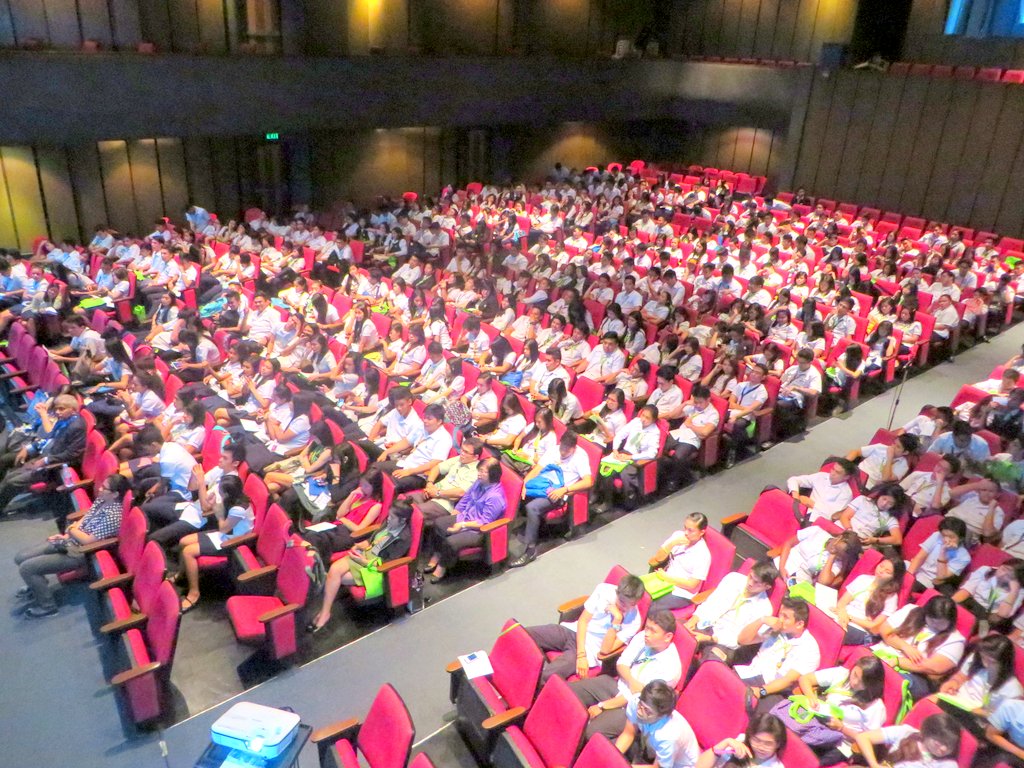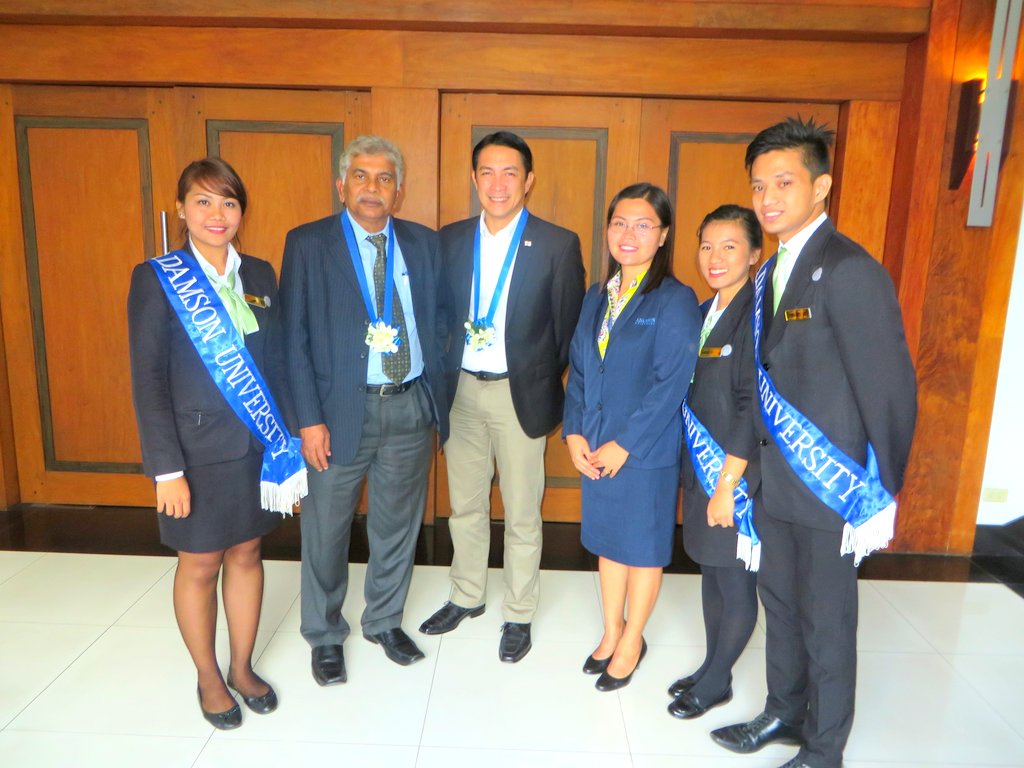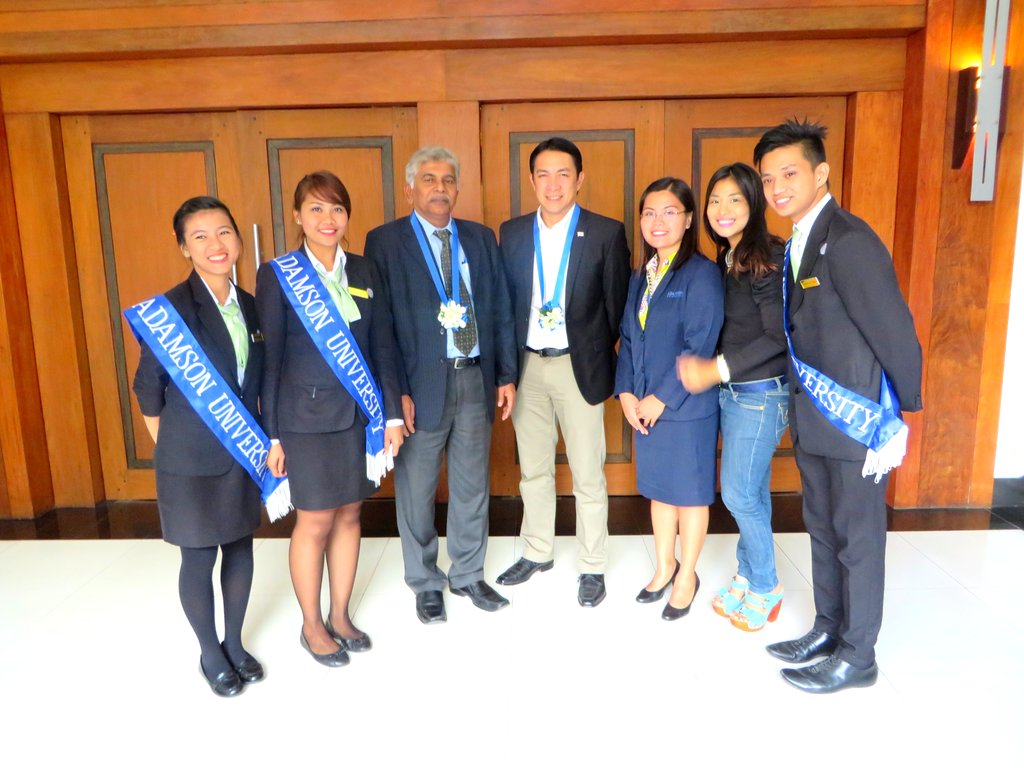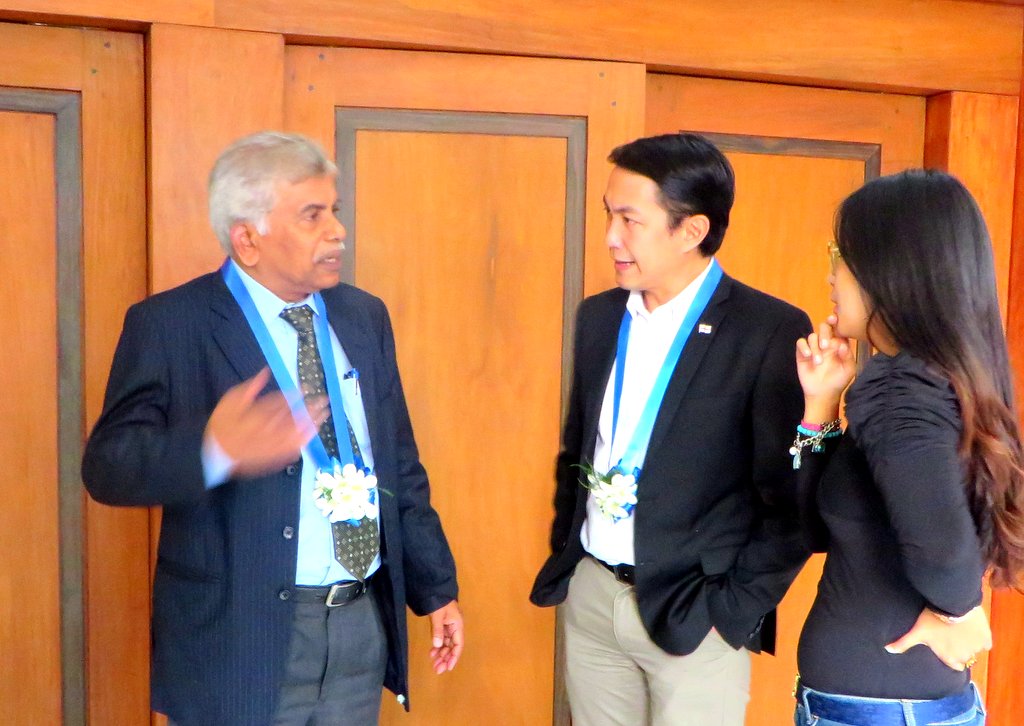On September 11, Consul Cunanan was the guest speaker at a seminar for graduating students of Adamson University entitled “Hospitality Management and ASEAN Integration”. The venue of the talk was at Adamson’s main theatre, located on the campus grounds on San Marcelino St., Manila.
Speaking before 400 students, Consul Cunanan made a brief tourism introduction about Georgia, using video and photo presentations. He then talked about the Association of Southeast Asian Nations (ASEAN), the coming ASEAN Economic Community in 2015, and how the grouping is viewed by Georgia.
Ambassador Mr. Zurab Aleksidze, who is the Georgian ambassador for the entire Southeast Asia and based in Jakarta, recently presented his credentials to Mr. Le Luong Minh, Secretary-General of ASEAN. Mr. Minh expressed appreciation for the desire of the Government of Georgia to strengthen friendly relations and cooperation with ASEAN and ASEAN Member States. He reassured Ambassador Aleksidze that he and the ASEAN Secretariat are ready to contribute further to promoting this flourishing relationship.
Ambassador Aleksidze, for his part, said that Georgia is interested in pursuing greater cooperation with ASEAN, and regards ASEAN as a growing important regional grouping which plays an increasingly vital role in the regional and international arena. They discussed potential areas of cooperation which include tourism, education, and promoting business-to-business and people-to-people contact.
In his speech, Consul Cunanan also talked about Georgia’s own experience with the European Union and the possible economic benefits for the country and people, if and when Georgia chooses to join the grouping. He also outlined initiatives, including the recently-signed Association Agreement between Georgia and the EU, which are strengthening the country’s ties to Europe. Prime Minister Irakli Garibashvili recently stated that Georgia could become an EU member in 5 – 10 years.
Consul Cunanan also discussed the history of ASEAN and the EU, the similarities and differences between the two groupings, and how citizens of member countries belonging could enjoy the benefits of a single market, free movement of capital and labor, and expanded employment, education, and social security opportunities.

